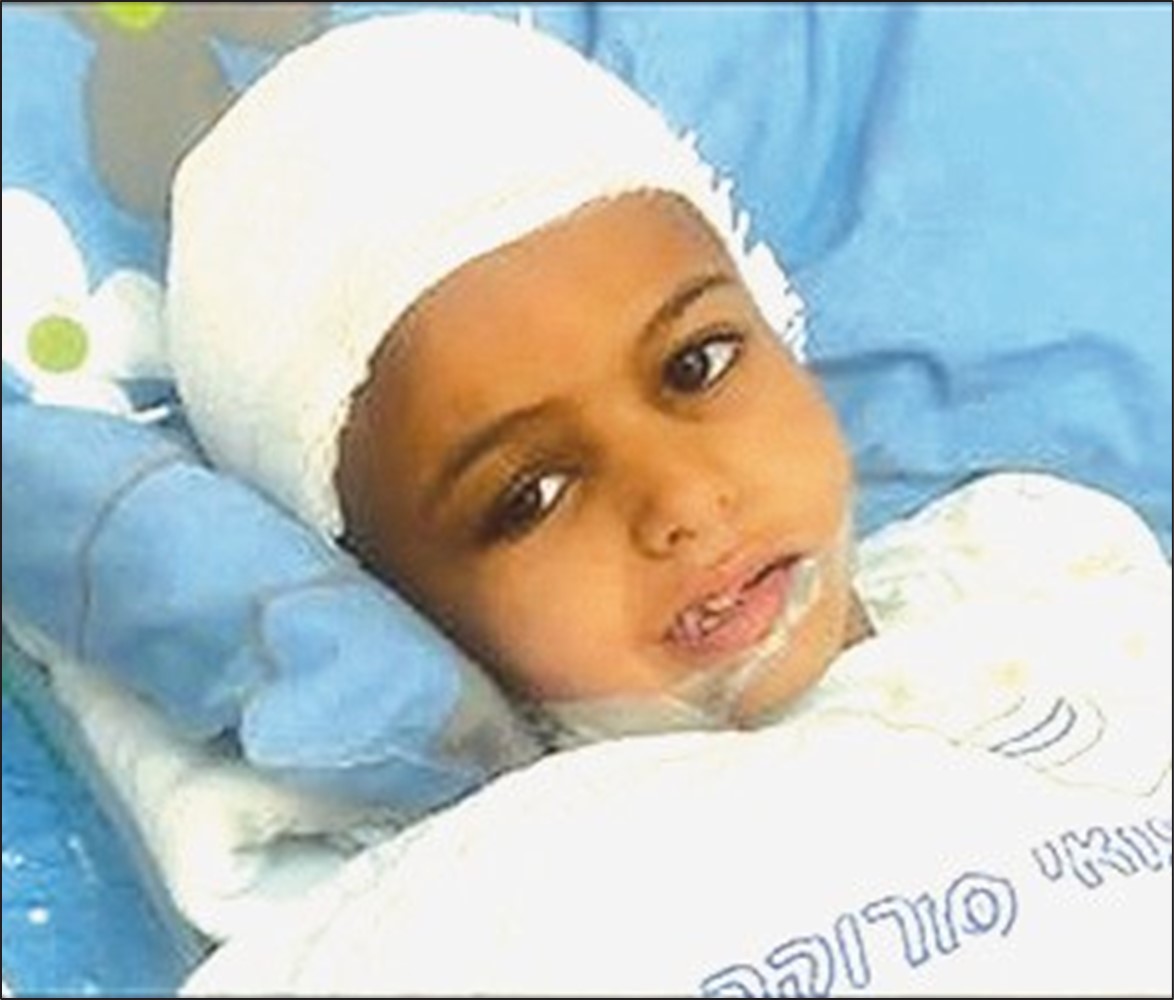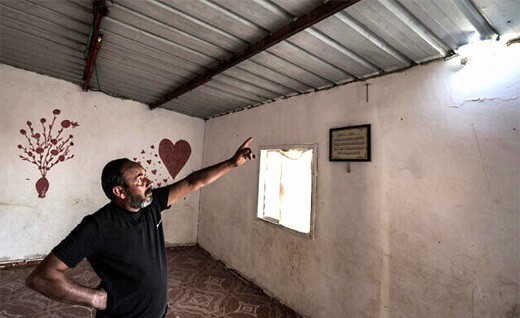July 5, 2024
The seven-year-old Bedouin girl who was seriously injured in the massive Iranian missile attack in mid-April has spoken in front of a television camera, her first public appearance since her hospitalization. The Israeli television crew visited Amina Hassouna at the hospital in Beersheba, and asked her a few simple questions in Arabic, such as “How old are you?” “Where are you now?” and “What is the name of your schoolteacher?” Amina weakly uttered a few words in response, and was also shown interacting with a medical clown and blowing soap bubbles.

Her father said doctors cannot yet predict when she will be released from the hospital. Hassouna, from the unrecognized Bedouin village of Al-Fura near Arad, was seriously wounded by shrapnel from a missile that fell directly on her family’s home during the Iranian assault on the night of April 13-14. Hassouna was the only serious casualty in the attack. A number of Israelis suffered minor injuries rushing to get into air raid shelters.

Muhammad Hassouna said the demolition order was only suspended, not canceled. Unrecognized Bedouin villages are regularly served with demolition orders as they are built without permits. However, many have existed on the same plots of land for generations, sometimes after being evicted by Israeli authorities from other areas. Securing building permits for Bedouin communities is nearly impossible and their leadership regularly accuses the state of discriminatory practices and neglect.
The elder Hassouna’s dramatic decision to torch the stable came while he was in the hospital with his daughter the day before her surgery, according to an account published by the Regional Council of Unrecognized Villages of the Negev (RCUV). RCUV said the father received a phone call from one of his sons who said a demolition order had been placed on a wooden post in the family home’s yard. Upon hearing the news, he rushed home, released the animals and burned the stable.
He did not take the time to read the notice hanging from the post, which said the demolition order had been suspended until August 30. In his interview with The Times of Israel, Muhammad Hassouna said that after setting fire to the structure, he fainted and was taken by ambulance to the same hospital where his daughter Amina was shortly to begin her surgery. The Times of Israel said he sounded very aggrieved by the self-inflicted loss of a valuable family property and the threat of additional fines. “The camels are now roaming freely around the village. If one of them walks on the road and causes an accident, or gets into a nearby village, I’ll be in trouble. Every day, I need to keep one of my children home from school to look after the camels. I have nowhere to put them.”
